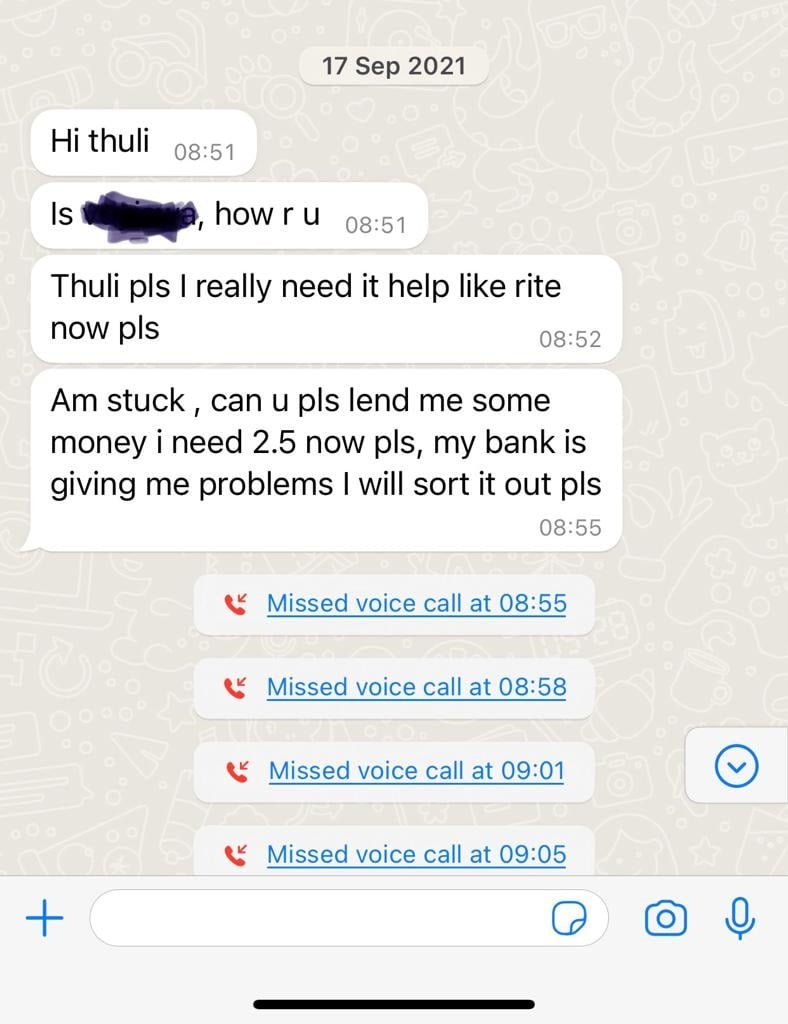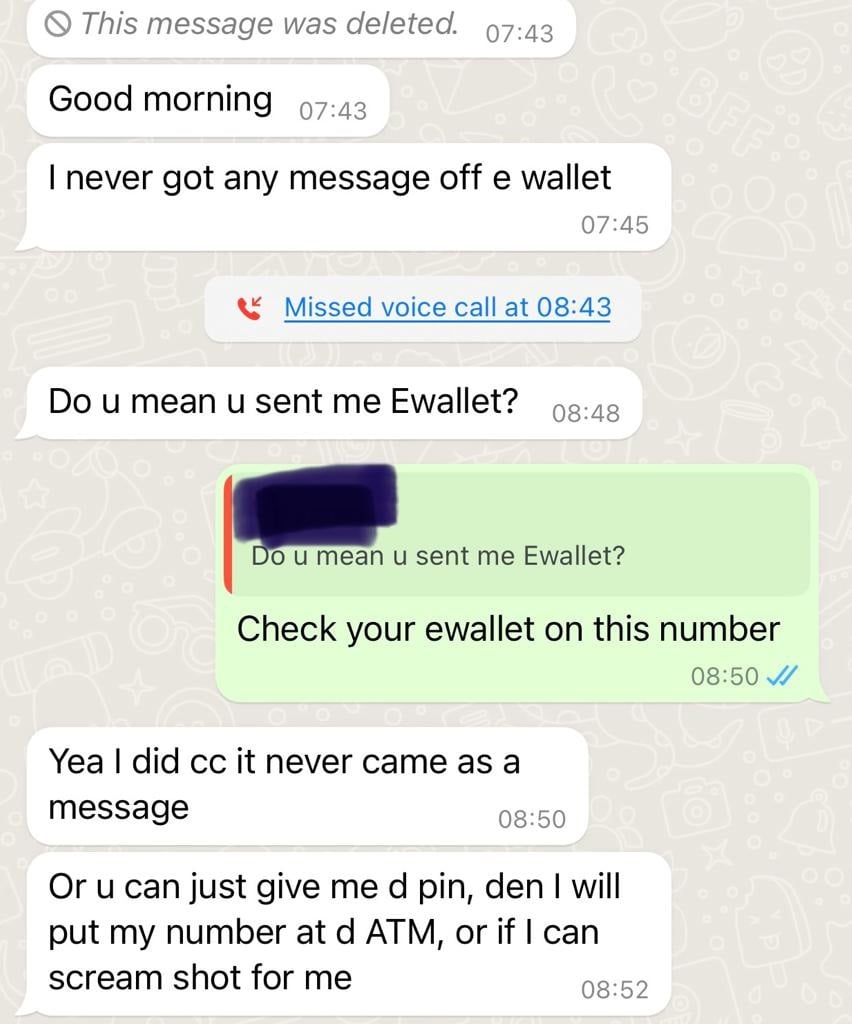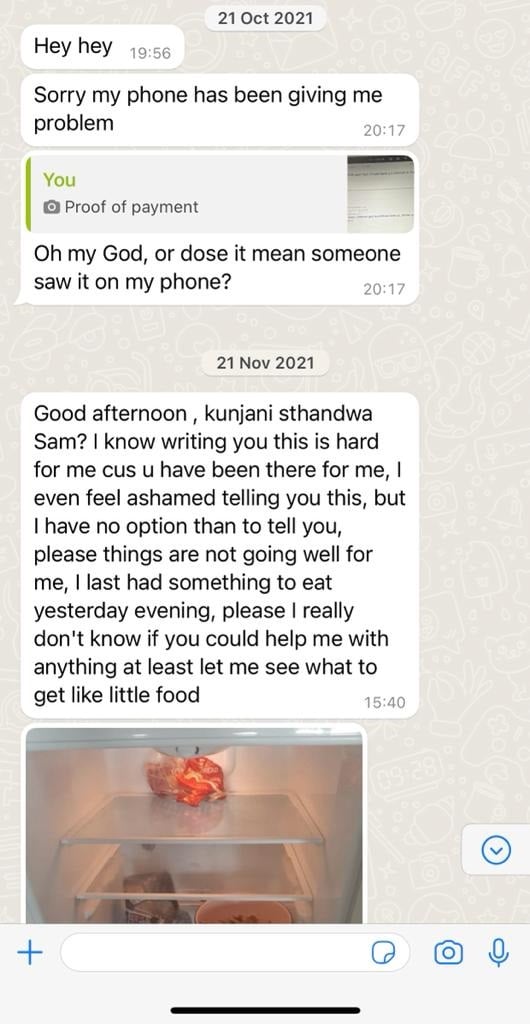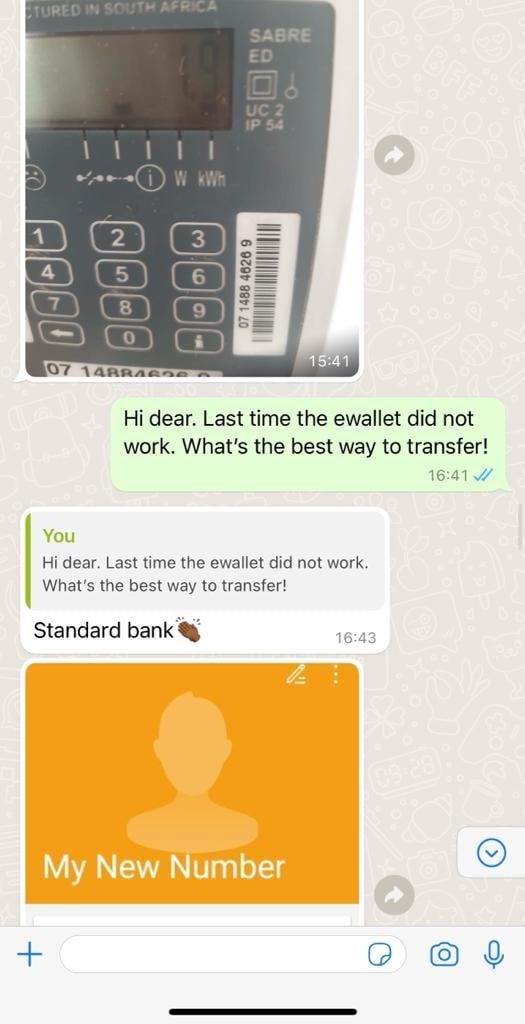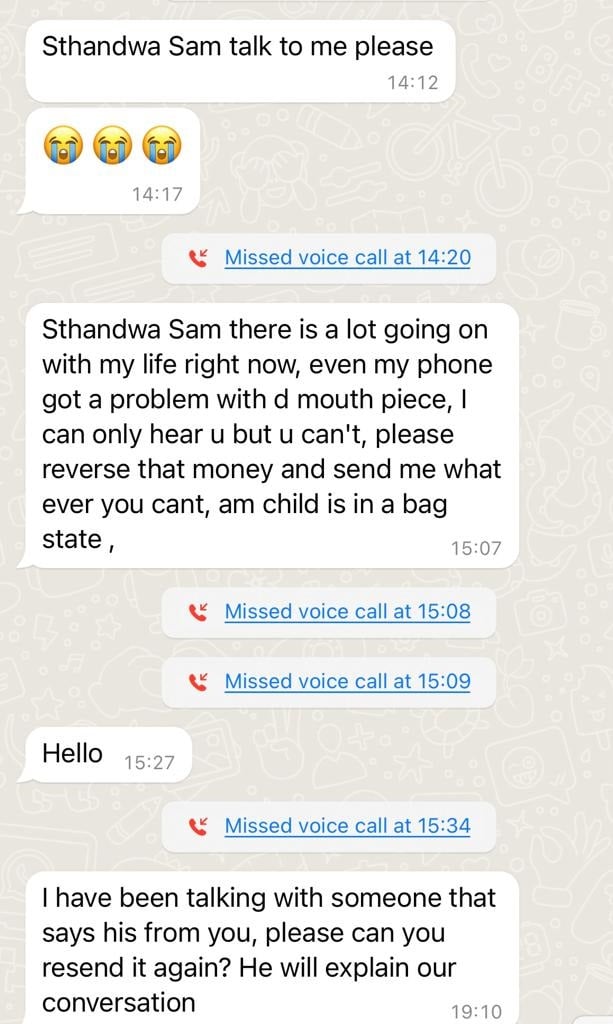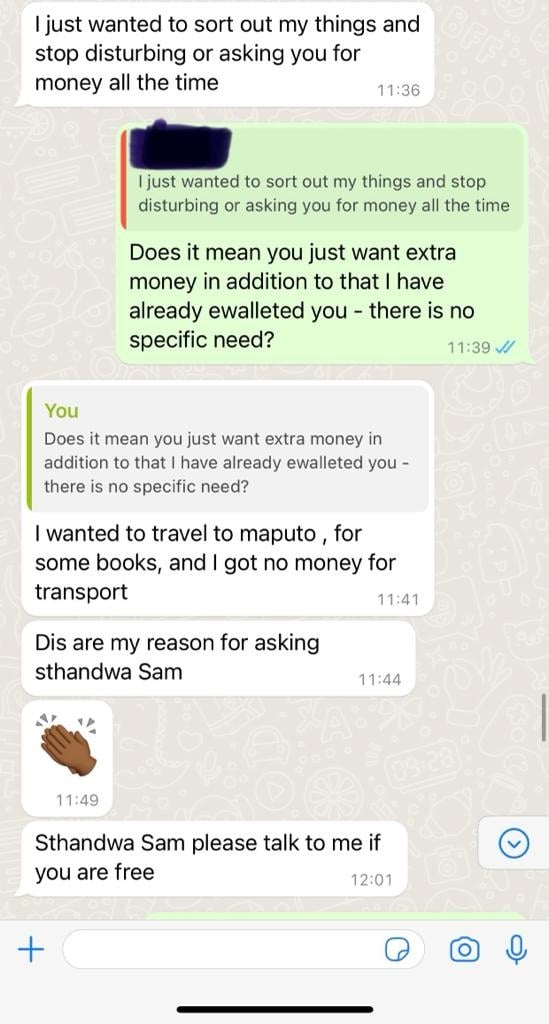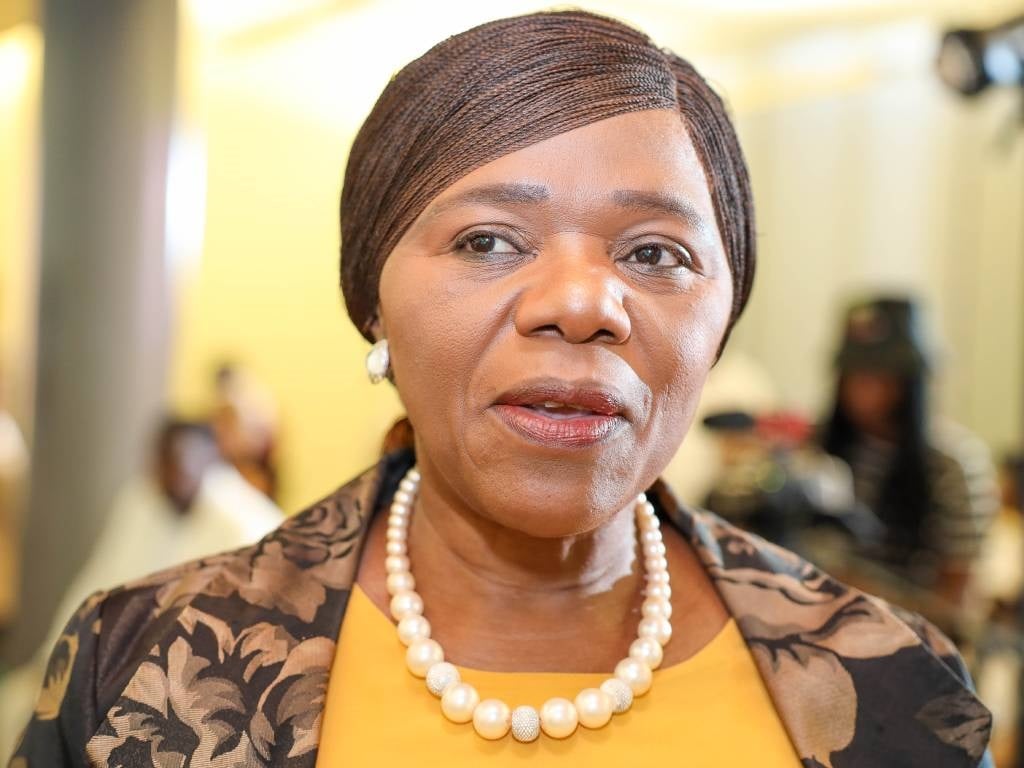
- Thuli Madonsela lost thousands of rand to a WhatsApp scam that lasted three months.
- Madonsela made multiple transactions before realising she was being scammed. Looking back, she realised it was obviously a scam.
- She is one of many people to lose money to online scams.
- For more stories, visit the Tech and Trends homepage.
Former Public Protector Thuli Madonsela says a scammer impersonating one of her friends on WhatsApp stole around R10 000 from her and another friend over a three-month period.
She is not alone as WhatsApp is commonly used by scammers to defraud South Africans out of their hard-earned money, often by taking advantage of their goodwill.
On Wednesday, Madonsela tweeted about the incident that occurred in late 2021 and called for others with similar experiences to come forward and share their experiences.
Looking back, she told News24, it should have been obvious the person she was giving money to was not her friend, but it was only when the scammer became "greedy and brazen" that she worked out what was happening.
Madonsela said she was treated like an ATM by the scammer.
The scam
Here is how the scam played out for her:
Madonsela provided some screenshots of the conversation and recounted some of it orally.
In early 2021, one of her friends lost their phone. Somehow, the phone ended up in the hands of a scammer who still had access to the friend's WhatsApp profile.
Transaction 1:
In September 2021, the scammer reached out to Madonsela for the first time:
"Hi Thuli, is [friends name] how r u."
She said her friend did not use terrible grammar like this which should have been the first indication to back out.
After exchanging pleasantries, the next message came in:
"Can you please lend me some money i need 2.5 now pls, my bank is giving me problems."
She said there were some more interactions after this, but "eventually I sent the money", said Madonsela.
The scammer then went quiet for a while.
Transaction 2:
Then the scammer requested R800 for a ticket and to be paid through First National Bank's eWallet.
"At this stage, I still had no idea I was being scammed. So, I eWalleted him the R800," said Madonsela.
But the next day, the scammer complained he had not received the funds sent through eWallet.
There was some more discussion, and another small transaction was made to check whether the money was received, but that discussion petered out.
Transaction 3:
In November, Madonsela was sent a photo of an empty fridge and an image of a prepaid electricity meter.
"I still didn't realise that it's not my friend."
Madonsela said she told the scammer the eWallet did not work so she asked the scammer what was the best way to transfer money.
Reading the messages now, she laughs at herself.
The scammer provided new bank details for Madonsela to use. She made the transaction.
The scammer went quiet again until December.
Transaction 4:
The scammer impersonating Madonsela's friend said her child was rushed to the hospital the night before.
She did not think at this point her real friend did not have any young children. She has adult children, so she assumed the issue must be affecting one of them.
"This person doesn't fully know my friend," said Madonsela.
She recruited her son to help work out what was happening and why the money was not being transferred to the person who they thought was the friend.
Madonsela's son was in contact with the bank and when they tried to call the scammer on WhatsApp they were told they could only type as the microphone on the phone was broken.
The scammer was getting a bit desperate and appealed to Madonsela's better nature.
"I know you have always helped me - please help," said the scammer.
"At this point, we were thinking our friend is in distress and the system is failing our friend," said Madonsela.
What made them realise they were being scammed was when they sent the scammer R20 to test if the transfer was working and the scammer said it was received.
This did not make sense, given the larger amounts had not been accepted.
Madonsela said the scammer clearly realised the R20 was no good to them and wanted a larger amount to be sent once they revealed the transaction had gone through.
She also worked out where her real friend was and asked the scammer where they were. Their answers were different.
Playing with the scammer
"Eventually, we decided to play him," said Madonsela.
She added they started asking the scammer leading questions now that they knew they were being scammed.
Madonsela asked if there was any specific need for the extra money the scammer was asking for.
"Eish my darling, my things are not going well," Madonsela recounted the response.
"I just wanted to sort out my things and stop disturbing you," said the scammer.
She asked the scammer if this just meant they wanted money in addition to what had already been provided to them.
The scammer concocted another story of needing to go to Maputo to buy books, but Madonsela was now wise to the scammer's antics.
In a weird twist of fate, Madonsela reached out to another friend who is a famous author, and worked out she was also giving money to their mutual friend.
The scammer also stole a few thousand rand from the famous author, whose contact details were also on the stolen phone.
Madonsela informed her she was being scammed.
One of many
In addition to being the former Public Protector, Madonsela is also a professor of law and advocate.
But she said she was made to feel stupid through this experience as looking back there were so many signs that it was a scam.
Scammers were eyeing South Africa's most popular messaging service according to Carey van Vlaanderen, the CEO of ESET Southern Africa, an IT security software firm.
WhatsApp has 23 million users in South Africa, making it the dominant messaging platform.
Van Vlaanderen said:
While WhatsApp has built-in security features to reduce the risk of using the platform, scammers are using non-technical methods to con people out of their money.
"This makes it important for users to be sceptical of unsolicited messages or requests for personal information, and to verify the authenticity of any communication or offer before doing anything else," said Van Vlaanderen.
The specific type of scam that Madonsela was a victim of was impersonation fraud.
According to Anil Rachamalla from the End Now Foundation, a non-profit promoting digital safety, who was writing for Talangana Today, the scammers created a WhatsApp account that looked just like someone the victim knew.
This could be their boss, a co-worker, a friend, or a family member.
The scammers then generally claim they need funds immediately due to some sort of emergency.
Most people provided money without seeking more detailed information as it seemed like the request was coming from a trusted source, said Rachamalla.
But these scams take many forms and are not limited to WhatsApp.
READ NOW | When buying puppies online, beware: Organised crime groups are robbing South Africans blind
Van Vlaanderen provided some tips to avoid falling victim to these scams:
1. Be wary of unsolicited messages
If you receive a message from an unknown number or a group you did not join, be cautious. Do not click on any links or download any attachments in such messages.
2. Verify the source
If you receive a message from a known contact, but it seems suspicious, verify (either by a phone call or using another social platform) with the person before clicking on any links or downloading any attachments. Scammers often use other people's hacked accounts to send fraudulent messages to their contacts.
3. Do not share personal information
Do not share any personal information like bank account details, passwords, or other sensitive information on WhatsApp, even if the request appears to be coming from a trusted source.
4. Enable two-step verification
Two-step verification adds an extra layer of security to your account.
5. Keep your WhatsApp app updated
Make sure you have the latest version of WhatsApp installed on your device. Updates often include security fixes and other enhancements that can help protect you from scams.
6. Be vigilant
If something seems too good to be true, it probably is. Do not fall for scams that promise you free gifts or money in exchange for personal information.
7. Use trusted antivirus software
Install reputable antivirus software on your device to protect yourself from malware and other security threats.
Madonsela said the experience had made her much more discerning when it came to trusting what was communicated to her online.
She now insists on calling people and speaking to them before parting with any money.
Madonsela said there should be some measures put in place to protect and educate South Africans about these scams.
"The Department of Justice needs to put in a unit that works specifically on [online scams], but also, it should work on [something that] indicates to people what is on the rise."




 Publications
Publications
 Partners
Partners





